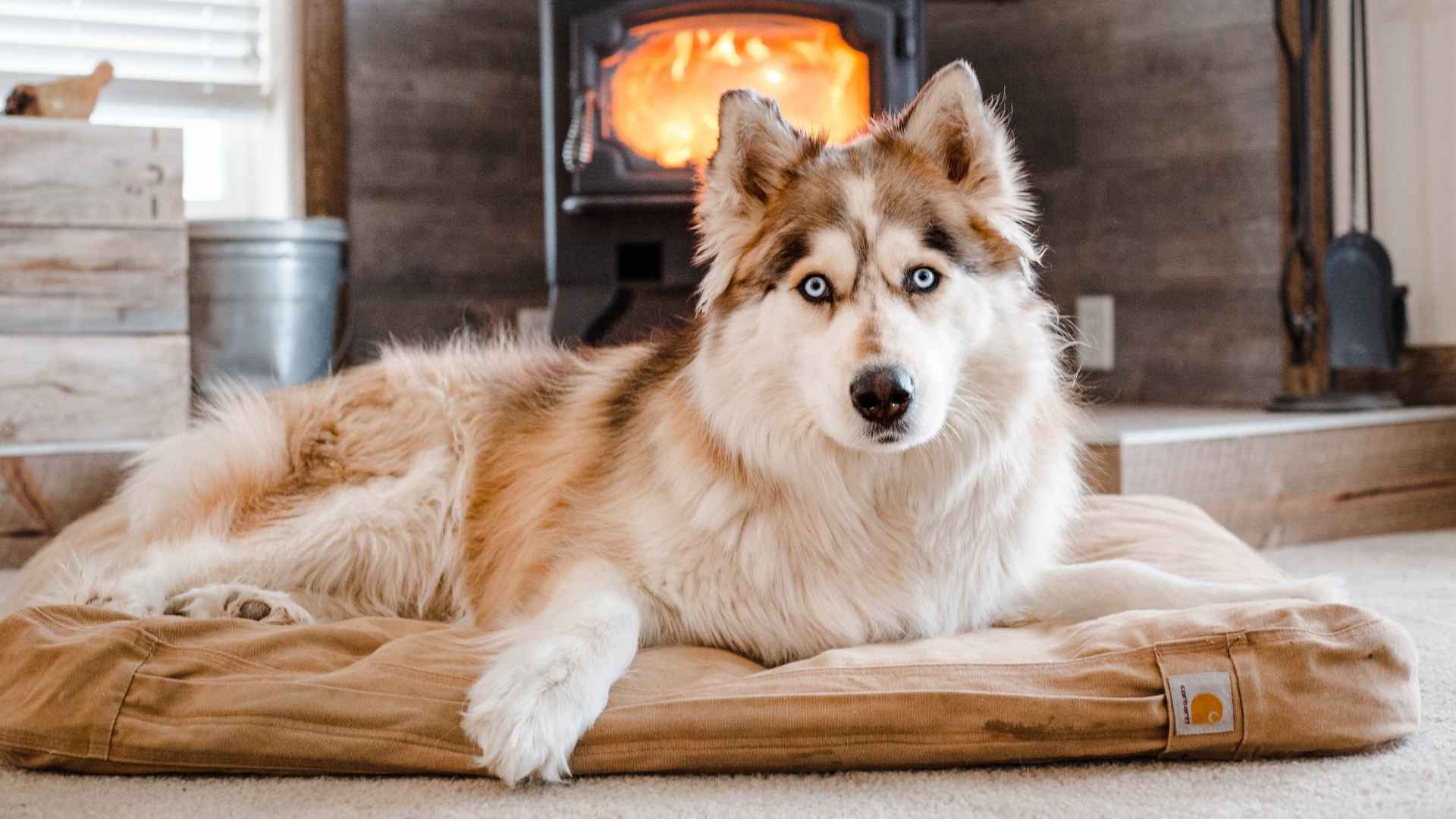Dogs are often celebrated for their unwavering loyalty, but not all breeds fit this stereotype. Some four-legged companions prefer to follow their instincts rather than constantly seeking approval from their owners. These independent breeds may form bonds with their families or other dogs, but their devotion comes on their terms. Unlike breeds that thrive on obedience and companionship, these dogs exhibit strong-willed personalities, stubborn temperaments, and a desire for autonomy.
Whether they were originally bred for hunting, guarding, or working alone, these particular breeds have a natural tendency to make their own decisions. Some might choose to lounge nearby rather than stick to their owner’s side, while others may prefer selective companionship over constant attention.
If you’re considering bringing one of these unique pups into your home, understanding their independent nature is key. While they may not fit the traditional definition of loyalty, their strong personalities and self-reliant traits make them fascinating and lovable in their own way. Ready to meet the least loyal dog breeds? Let’s dive in!
Least Loyal Dog Breeds
1. Afghan Hound
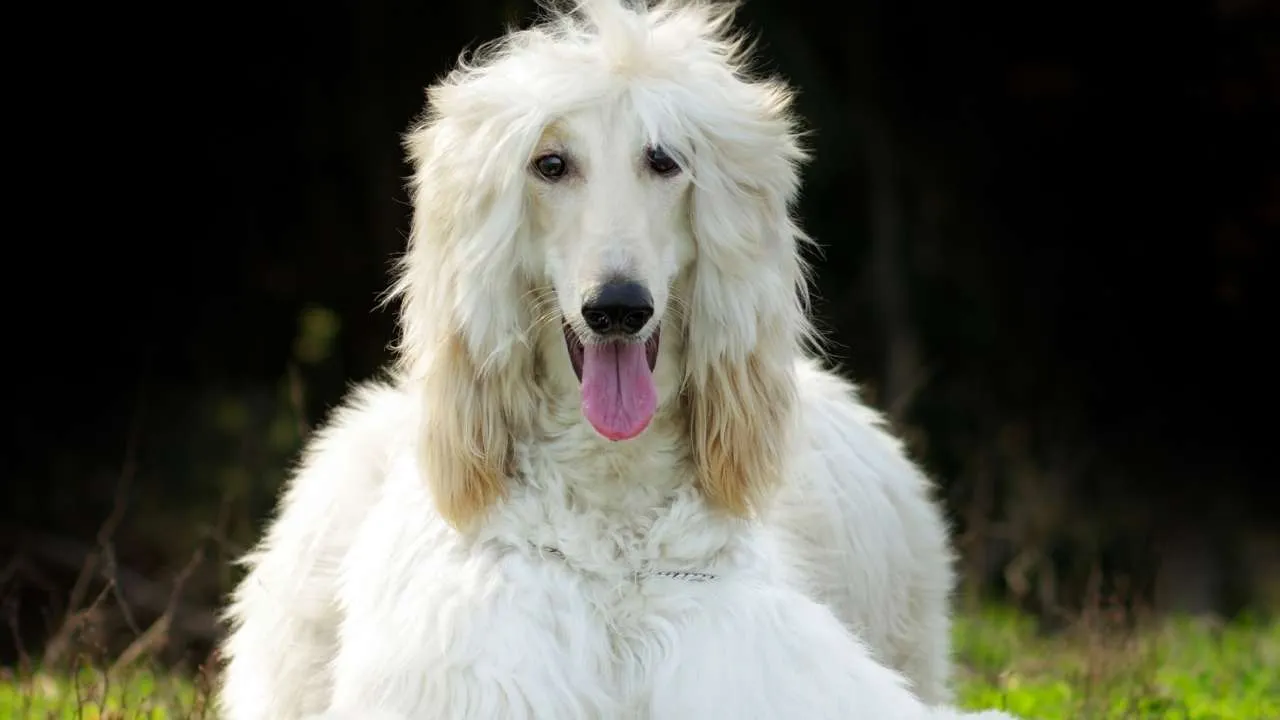
Elegant and aloof, the Afghan Hound is known for its independent nature. Originally bred as independent hunters in Afghanistan’s harsh terrain, these dogs developed a strong sense of self-reliance. Their long, flowing coats provide insulation against extreme weather, but they require frequent grooming to maintain their signature look.
Unlike more eager-to-please breeds, Afghan Hounds prefer to make their own decisions. They are very intelligent dogs but can be notoriously difficult to train due to their stubborn streak. The key to successfully training them lies in patience while applying positive reinforcement techniques. While they recognize their owners, they do not always conventionally show affection, making them one of the least devoted breeds.
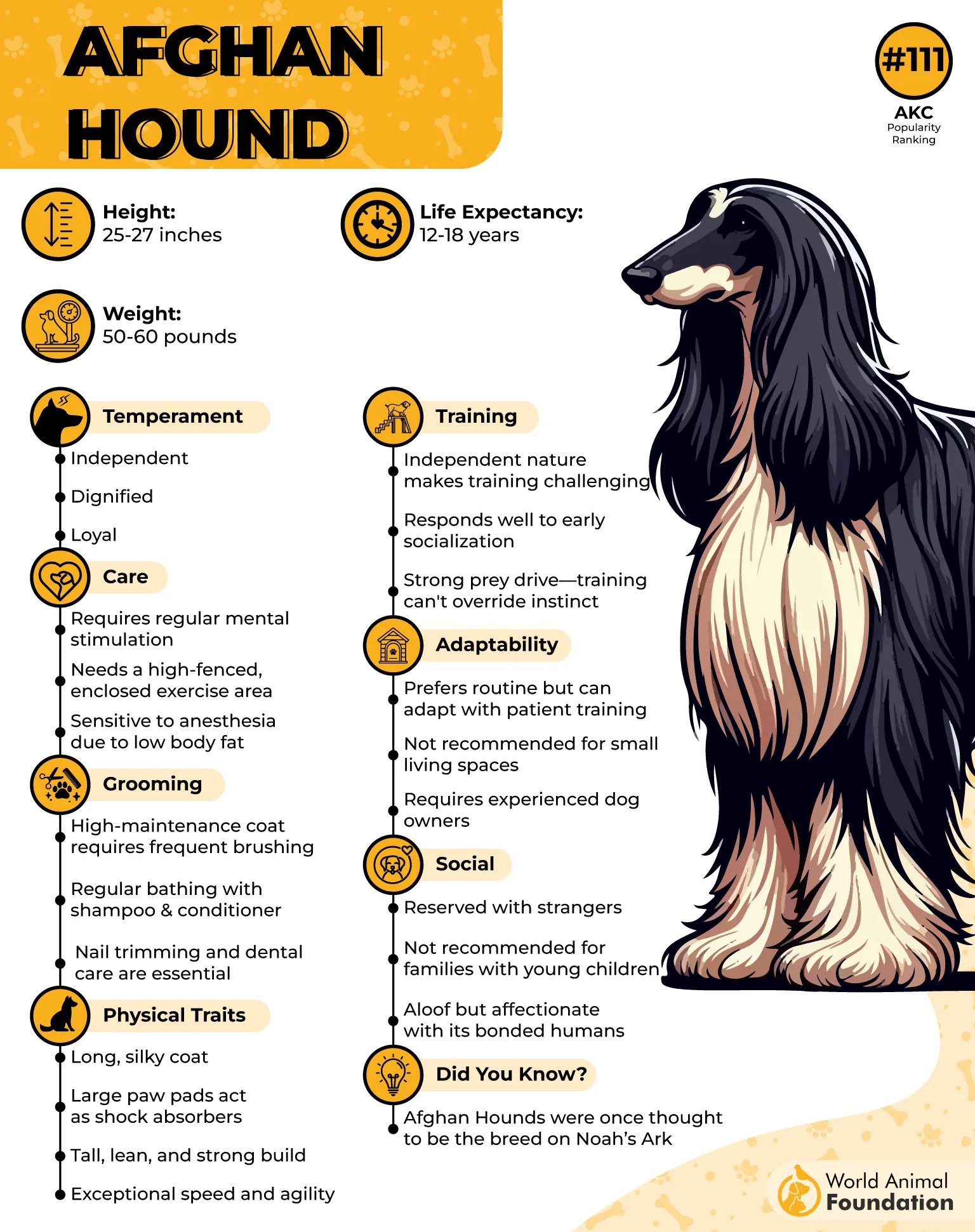
This breed is known for its cat-like personality, often appearing reserved and indifferent to commands. While they may form bonds with their family, they do not seek constant attention or reassurance. Their loyalty is selective, and they will not obey blindly, requiring an owner who understands their unique traits.
Afghan Hounds have a strong prey drive and chase anything that moves, making them unsuitable for off-leash activities. Without extensive socialization, they may come across as distant or uninterested in human interaction. Their beauty and poise make them captivating, but their independent spirit can be challenging for those seeking a devoted pet.
Despite their aloof nature, Afghan Hounds show affection—but always on their terms.” They thrive in homes that respect their need for space and freedom, making them ideal for experienced dog owners who appreciate an independent-minded companion.
2. Chow Chow
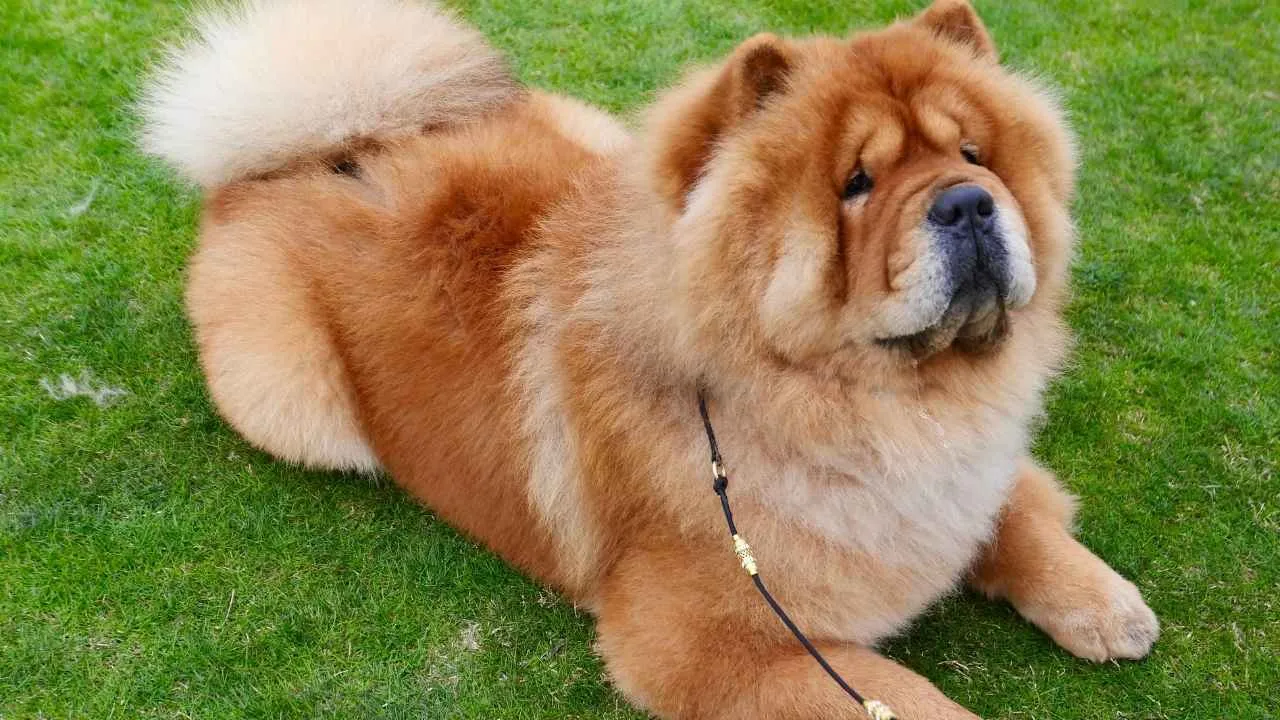
With their thick coats and serious expressions, Chow Chows have a regal presence that matches their reserved personality, as described by PetMD. Originating from China, this breed was used for guarding temples, a role that contributed to their aloof and independent demeanor. Their blue-black tongues and lion-like manes make them stand out, but their personality sets them apart from more affectionate breeds.
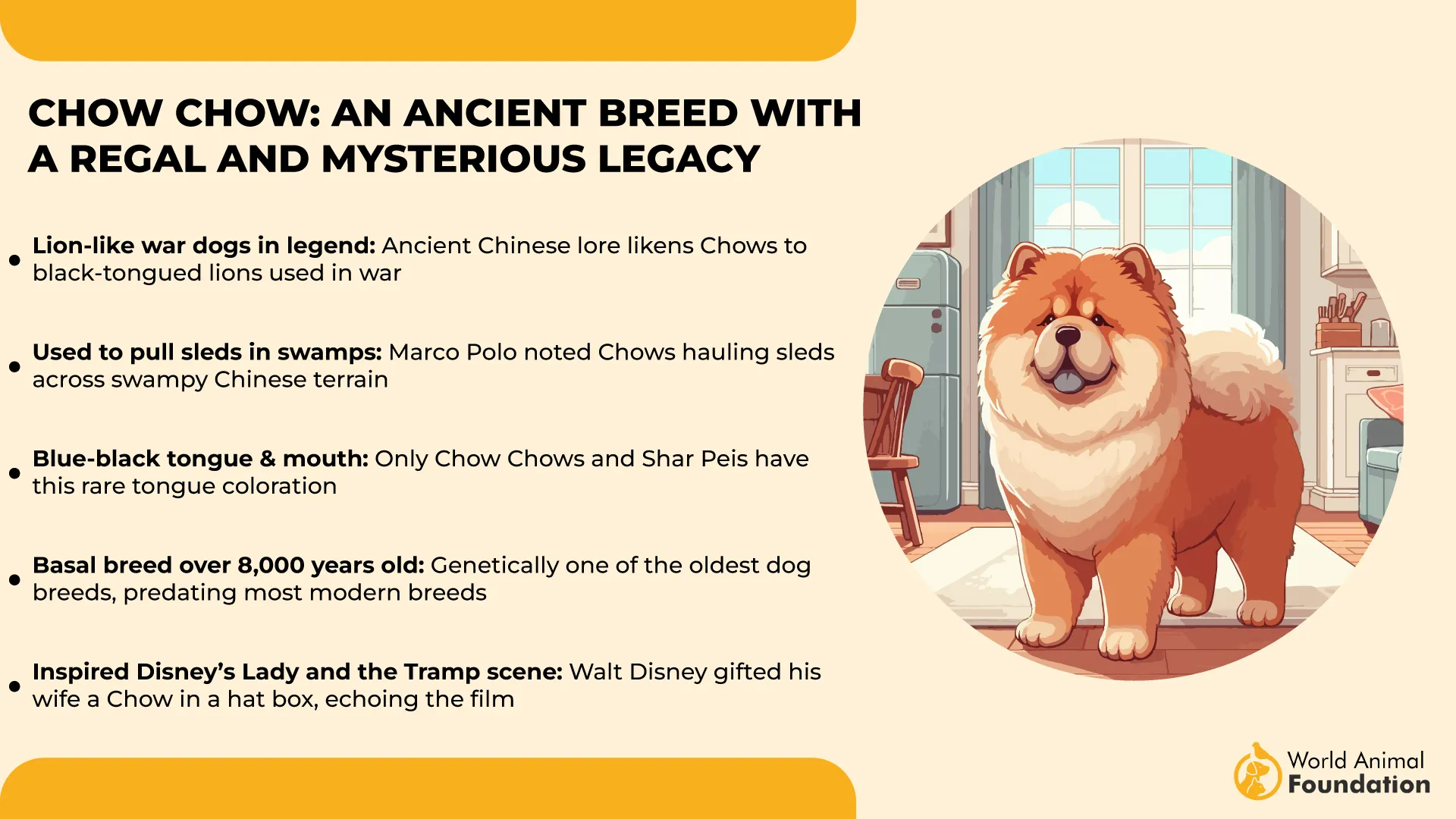
Unlike dogs that crave constant attention, Chow Chows are selective in their relationships. They may form deep bonds with one or two family members but remain indifferent toward strangers. Their loyalty is earned, not given freely, and they often ignore commands unless properly motivated. This strong-willed nature makes them one of the least obedient breeds.
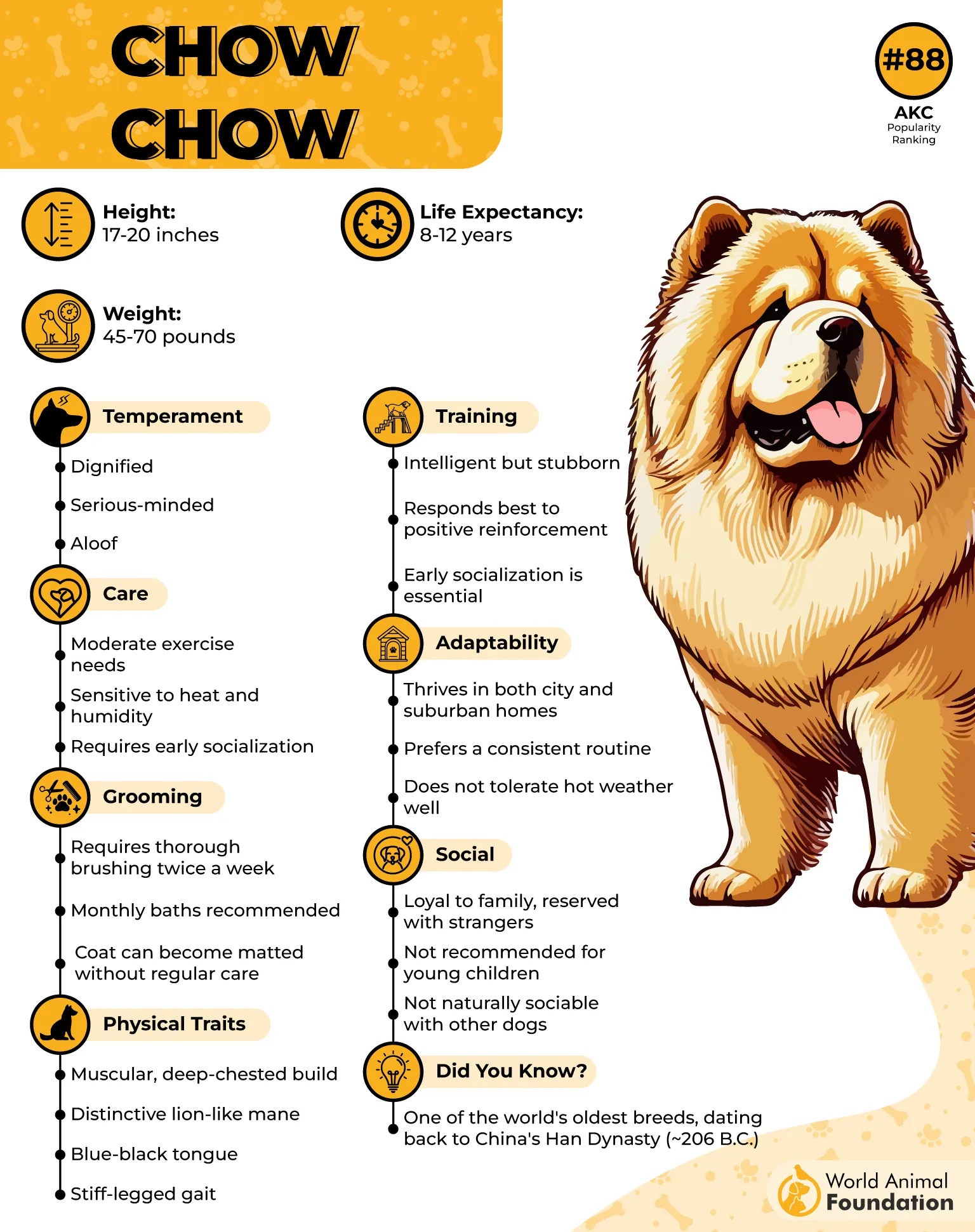
Training a Chow Chow requires patience, as it has an independent mindset and does not respond well to forceful methods. They are intelligent but prefer to make their own choices, often resisting obedience training. Socialization from an early age is necessary to prevent aggression or territorial dog behavior thereafter.
Their thick double coats require frequent brushing to prevent matting, but despite their plush appearance, they are not overly cuddly dogs. They prefer observing their surroundings rather than engaging with affectionate companions. Their dignified attitude can be mistaken for coldness, but they simply have a different approach to companionship.
While they may not be the most affectionate breed, Chow Chows are fiercely protective of their families, making them excellent guard dogs. They thrive in homes with experienced owners who understand their independent streak and are willing to provide consistent yet respectful training.
3. Bulldog
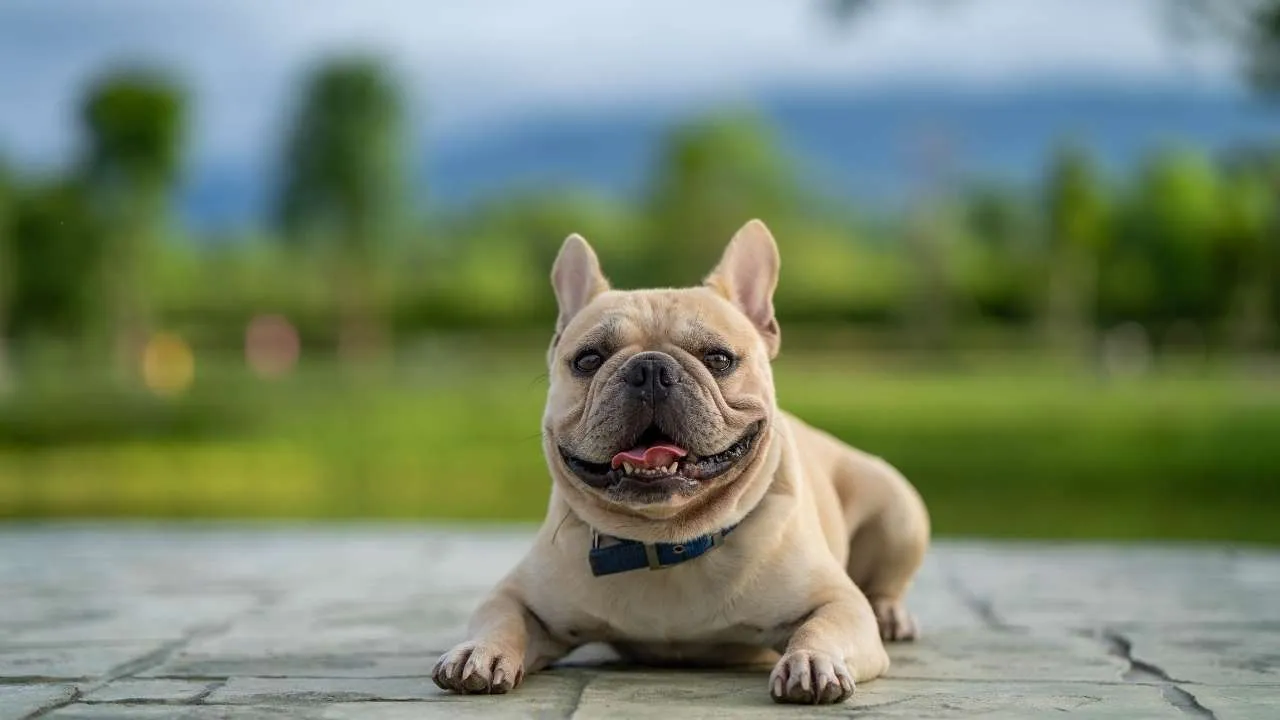
Bulldogs are known for their stocky build, wrinkled faces, and stubborn personalities. Originally bred for bull-baiting, they have since transitioned into companion animals, but their independent nature remains. Despite their affectionate side, they are not known for their obedience or loyalty in the same way as other breeds.
Unlike breeds that live to please their owners, Bulldogs often prefer doing things at their own pace. They can be affectionate, but only when they decide it’s time for attention. Commands may be ignored, and they are notorious for their lazy yet stubborn disposition.
Bulldog requires patience, as they respond best to positive reinforcement. Harsh corrections will only make them more resistant to learning. While they may enjoy human company, they are not as eager to follow instructions as other companion breeds, making them one of the least obedient dogs.
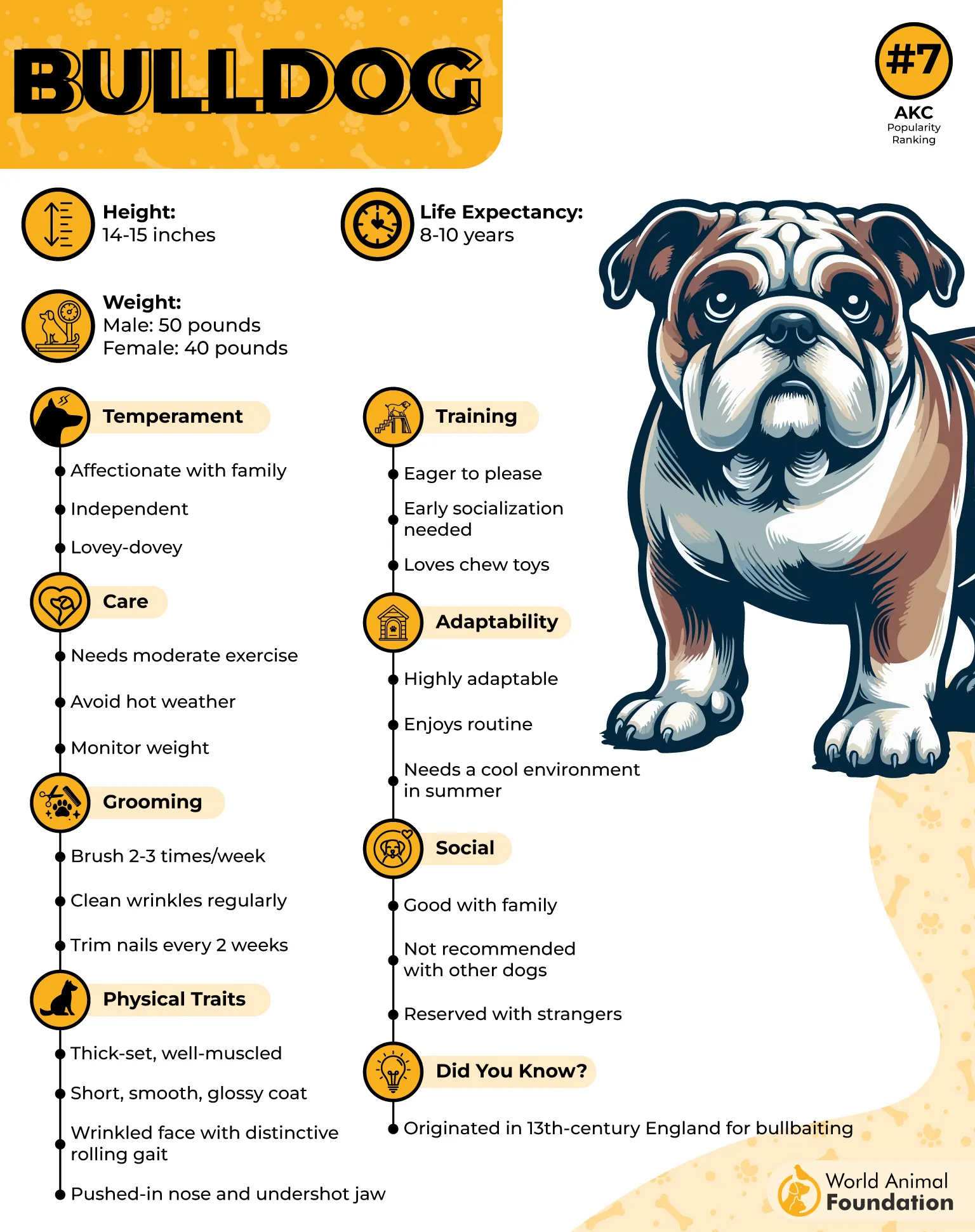
According to the American Kennel Club, Bulldogs must be socialized and trained early. They have specific health needs due to their short snouts, including breathing difficulties and sensitivity to heat. They require regular monitoring, but their relaxed lifestyle means they are not overly demanding in terms of exercise. Their stubborn nature, however, can make even simple training sessions a challenge.
Though Bulldogs may not be the most loyal or obedient breed, they have an undeniable charm. Their independent nature makes them a favorite among owners who appreciate a dog’s personality that thrives on autonomy.
4. Bloodhound
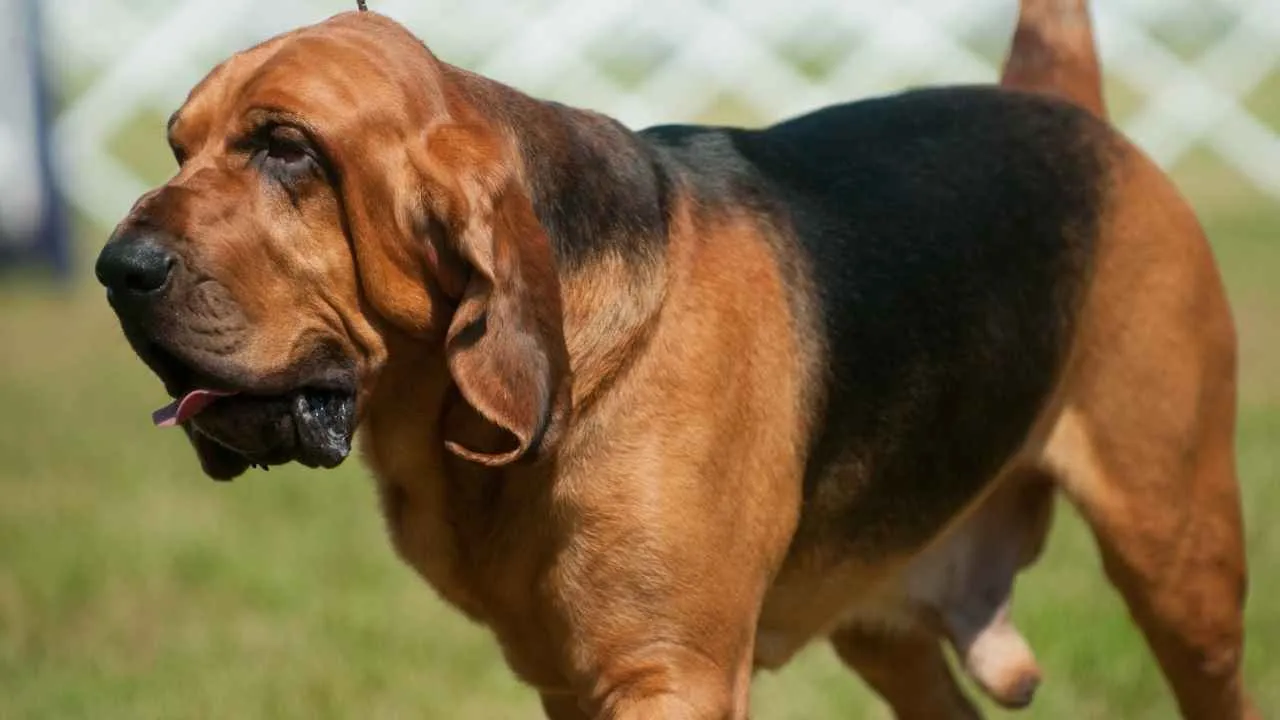
Bloodhounds are famous for their unmatched scent-tracking abilities, often used in search-and-rescue missions. While highly intelligent, they are also incredibly independent, making them one of the least obedient breeds. Their strong instincts often override their desire to listen to commands, making training a challenge.
These dogs were originally bred to track game over long distances, which means they tend to follow their noses rather than their owners. A Bloodhound on a scent trail will ignore even the most urgent calls, making off-leash activities risky. Their instincts make them difficult to control without extensive training.
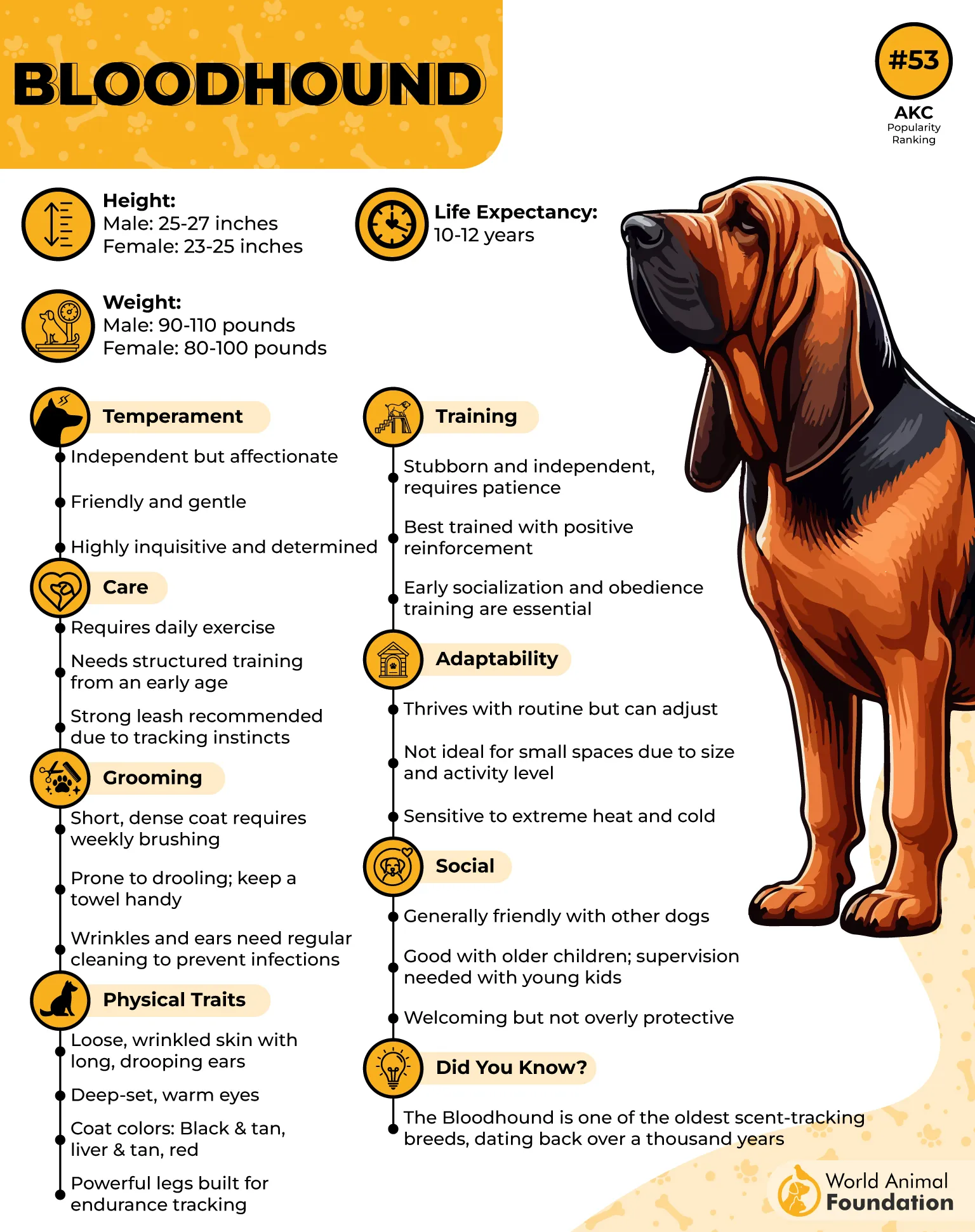
Although Bloodhounds are affectionate and gentle, they are not known for their loyalty in the traditional sense. They enjoy human company but are easily distracted, making them unreliable in terms of obedience. These scent hounds are prone to wandering off if not kept in a secure area.
According to WebMD, their long ears and droopy skin require regular cleaning to prevent infections. Bloodhounds also drool excessively, which may be a challenge for some owners. While they are patient and kind, their independent mindset means they do not always follow instructions.
For those seeking an obedient and devoted dog, the Bloodhound may not be the best choice. However, owners who appreciate their tracking skills and gentle nature can make fascinating and loving companions, just not the most loyal ones.
5. Borzoi
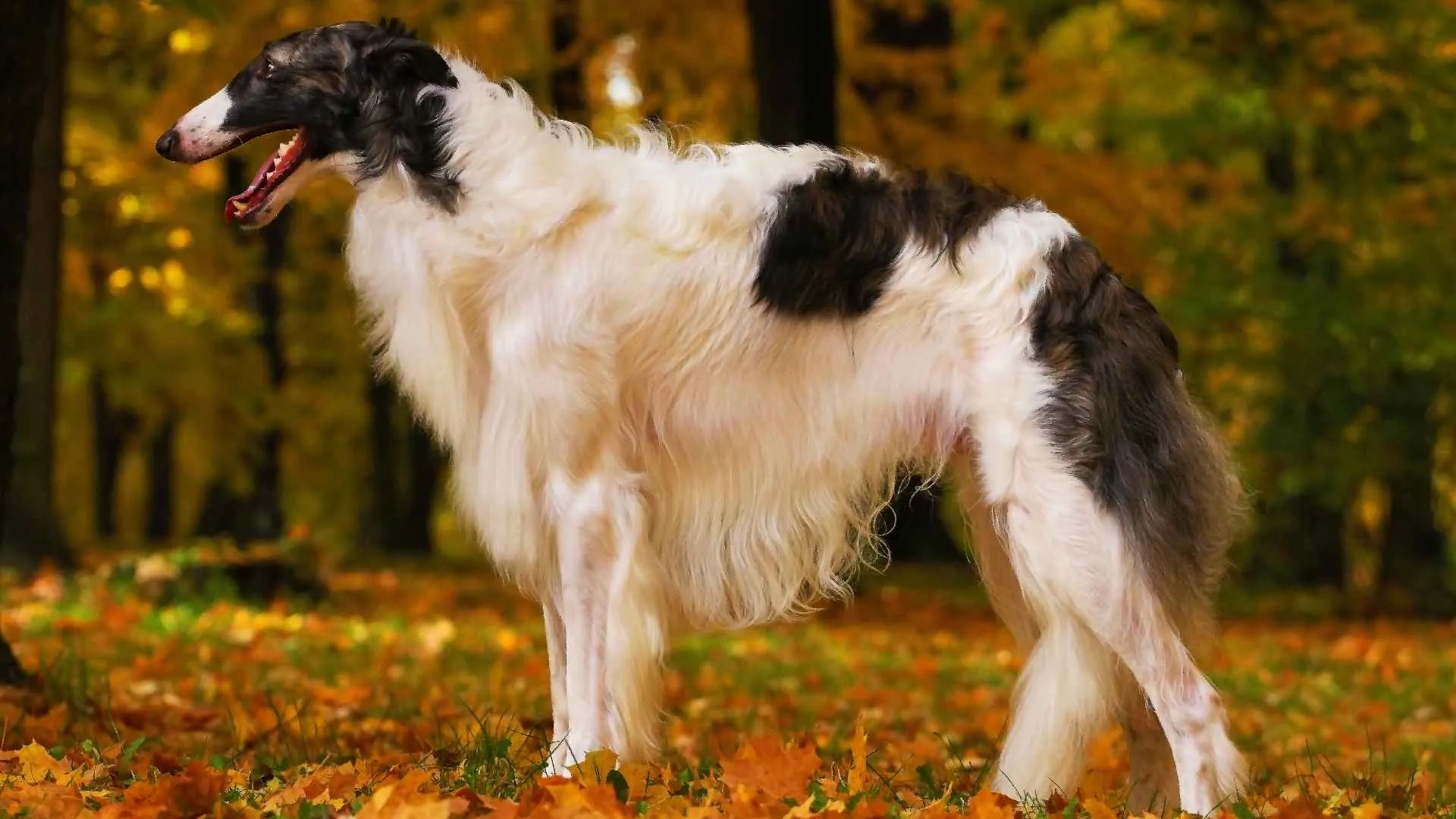
The Borzoi, also known as the Russian Wolfhound, is a breed that epitomizes grace and independence. Originally bred to hunt wolves in Russia, they are incredibly fast and agile, with a strong instinct for chasing moving objects. Their independent nature makes them one of the least obedient dog breeds.
Unlike dogs that thrive on human validation, Borzois have a mind of their own, making dog training more challenging. They are intelligent but see no reason to follow commands unless properly motivated. Training requires patience and creativity, as they tend to ignore repetitive drills.
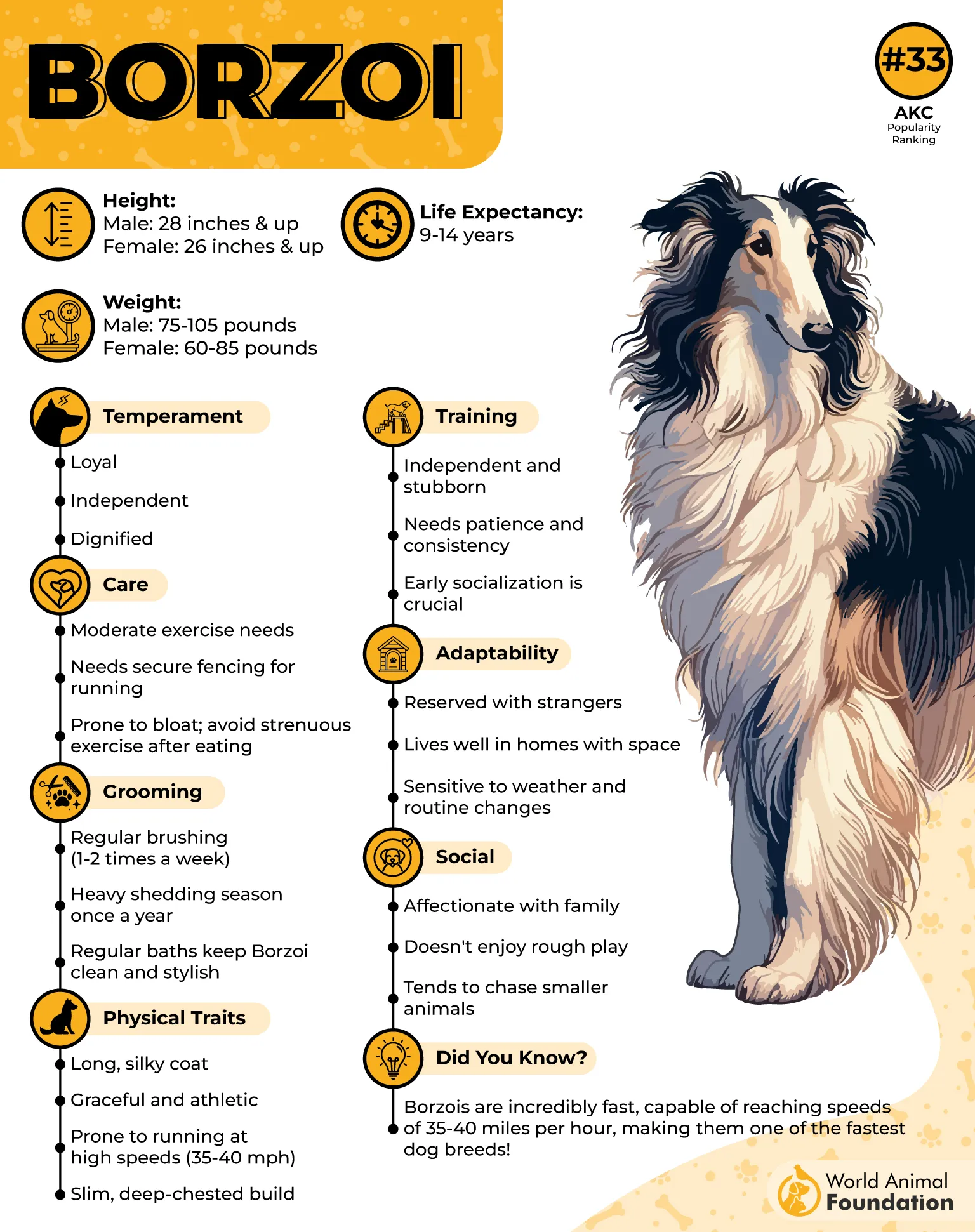
Despite their reserved nature, Borzois form attachments to their owners, but they do not express affection in an obvious manner. They are quiet and composed, often preferring solitude over constant interaction. This reserved temperament makes them appear indifferent at times.
Their long, silky coats require regular grooming to prevent tangling. While they enjoy running, they are not overly energetic indoors, making them suitable for owners who prefer a calm dog with occasional bursts of activity. However, their strong prey drive makes them unsuitable for homes with small pets.
For those seeking a devoted, eager-to-please companion, the Borzoi is not the best choice. However, experienced owners who appreciate independence and elegance can be a rewarding breed with a unique personality.
6. Beagle

Small but full of energy, the Beagle is a breed known for its exceptional scent-tracking abilities. Originally bred for hunting, they have a strong instinct for following trails, often ignoring commands when an interesting scent catches their attention. Their independent nature makes them one of the more stubborn dog breeds when it comes to training.
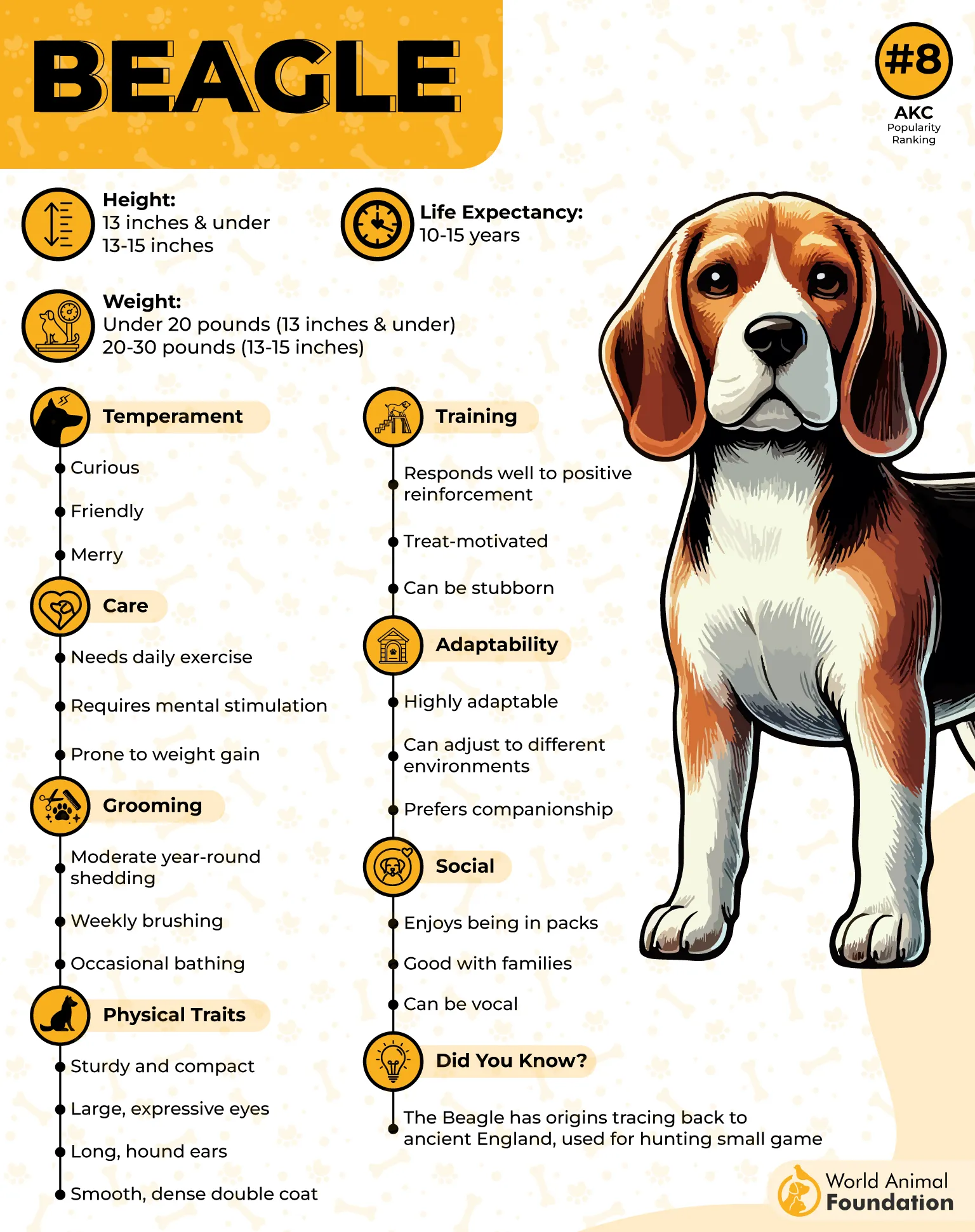
Beagles are highly intelligent, but their desire to explore often takes precedence over listening to their owners. This trait makes certain breeds, like the Beagle, challenging to train, especially in environments with distractions. They are curious by nature, and their selective hearing means they will often pretend not to hear commands when focused on something else.
Although Beagles are friendly and affectionate, they do not display unwavering loyalty like some other breeds. They enjoy socializing but are just as happy chasing scents on their own. Their strong-willed personality requires patience and consistent training, with positive reinforcement working best.
Their short coats are easy to maintain, but their high energy levels mean they require plenty of exercise. Without proper mental stimulation, they may become bored and engage in destructive behaviors such as digging or excessive barking. Their independent streak can make them a challenge for first-time dog owners.
While Beagles are loving companions, their strong hunting instincts and tendency to follow their noses make them one of the less obedient breeds. They thrive in homes that provide structured training and ample exercise, but they are not the best fit for those seeking a highly loyal and obedient pet.
7. Basset Hound
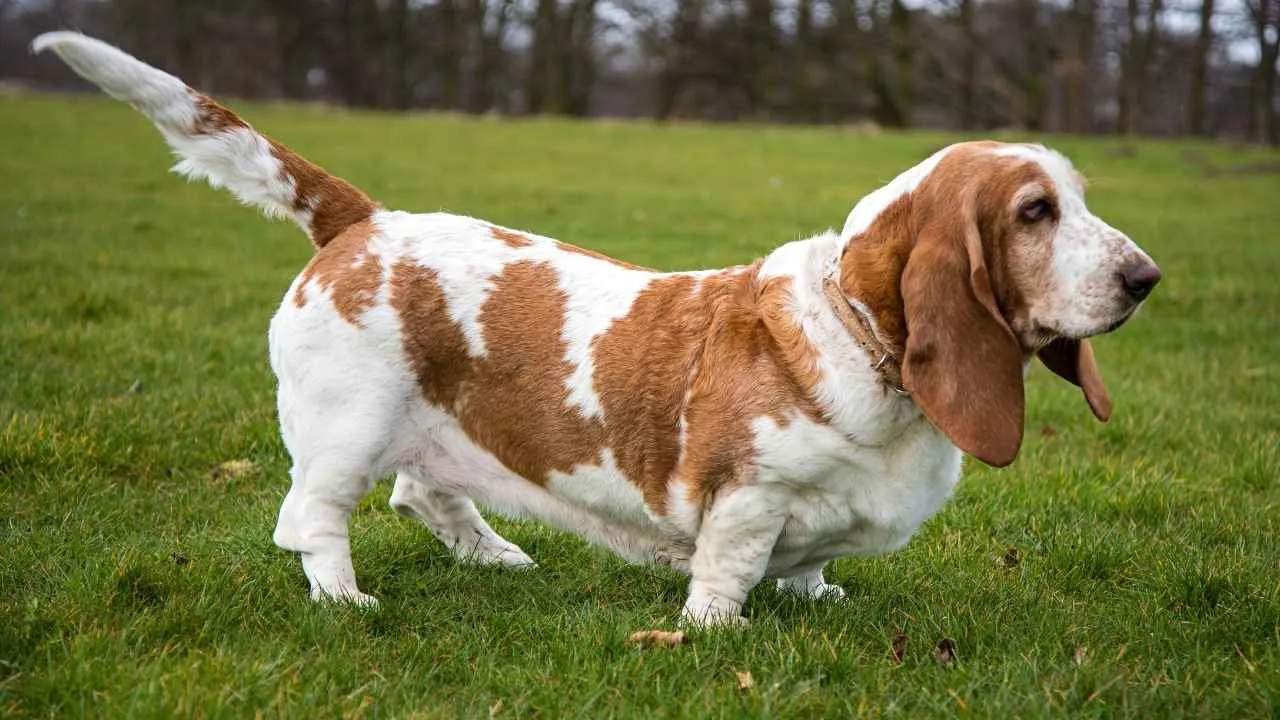
With their droopy eyes, long ears, and distinctive howl, Basset Hounds are one of the most recognizable breeds. Originally, they belong to the hunting dog breed and possess an incredible sense of smell, second only to the Bloodhound. This strong tracking ability often overrides their willingness to obey commands, making them a challenging breed for training.
Basset Hounds are known for their laid-back nature, often appearing lazy or indifferent. While they enjoy companionship, they do not always respond eagerly to training commands. Their stubborn streak means they require consistent training and patience from their owners. Unlike more obedient breeds like sled dogs, they tend to follow their instincts rather than instructions.
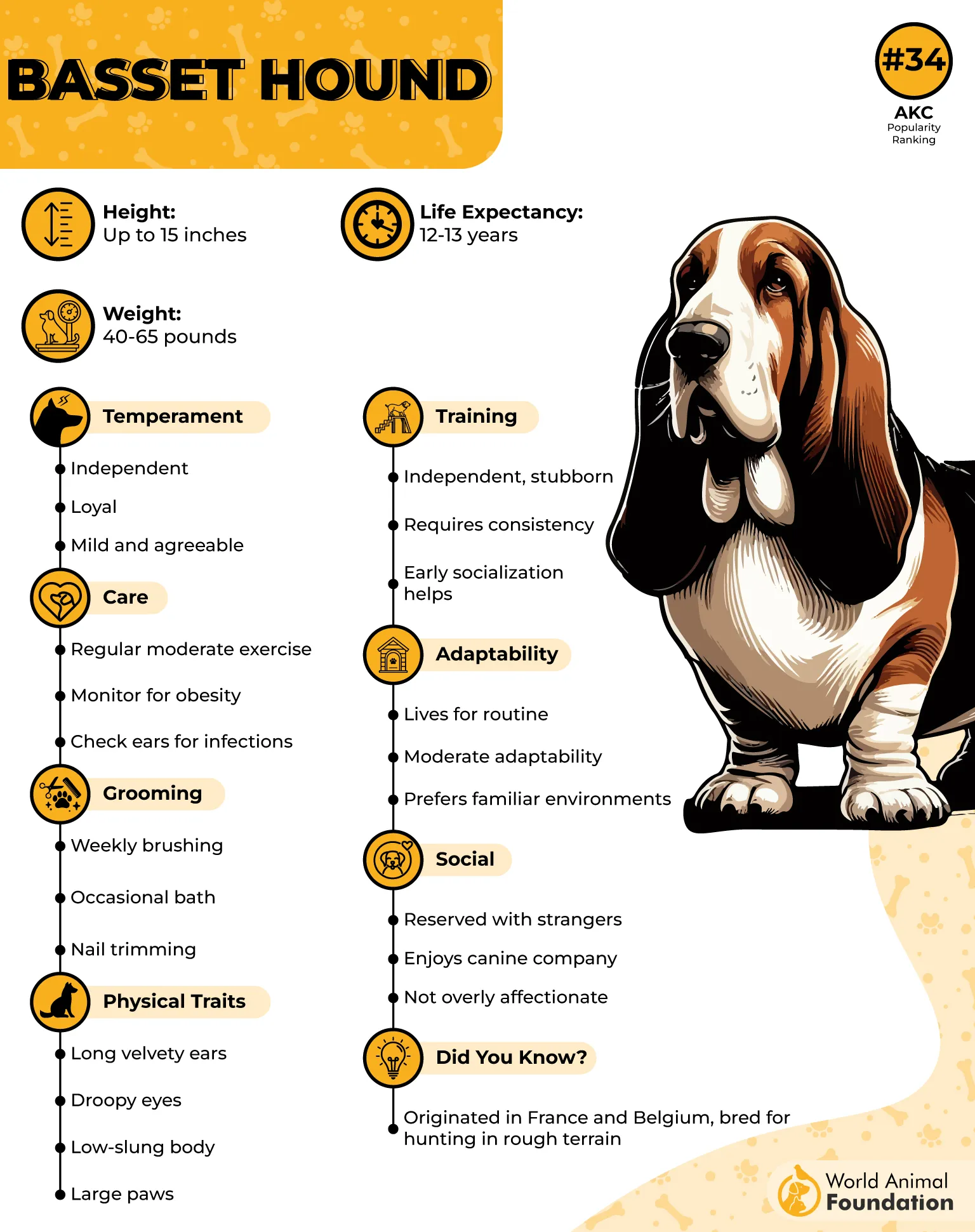
Although affectionate, Basset Hounds do not exhibit the same level of devotion as some other breeds. They form bonds with their families but will not necessarily follow commands just to please their owners. Their independent thinking and strong scent-driven focus make them prone to wandering off if given the chance.
Their short legs and long bodies make them prone to weight gain, so regular exercise is crucial. Despite their relaxed demeanor, they require mental and physical stimulation to prevent boredom. Their deep, melodic howls can be a challenge for owners in quieter environments, as they love to “talk” when excited.
Basset Hounds may not be the most obedient breed, but their charming personalities and relaxed attitude make them endearing companions. They are best suited for owners who appreciate their independent nature and are willing to invest time in consistent training.
Conclusion
While some dog breeds are naturally devoted and eager to please, showcasing their dog’s obedience side, others march to the beat of their drum. The least obedient dog breeds, such as the Afghan Hound and Chow Chow, showcase strong-willed personalities that resist traditional obedience training. Their independent thinking, originally bred for hunting and guarding, makes them fascinating companions for owners who appreciate a self-reliant pup. Unlike obedient breeds like Border Collies and Golden Retrievers, these free-spirited canines prefer making their own choices rather than following commands blindly.
Even the most independent dog breeds can become well-behaved companions with proper training sessions and positive reinforcement techniques. Some, like the Basset Hound and Beagle, may have stubborn streaks but still thrive in structured environments with mental stimulation and consistent training. While they may not be as eager to follow every command as a German Shepherd or a Labrador Retriever, they form bonds with their families in their own unique way.
Choosing a breed should align with its breed characteristics, as well as the owner’s lifestyle and expectations. Those seeking highly obedient breeds might lean toward working dogs, while individuals who appreciate a dog with a more independent nature may find joy in less obedient breeds. Even the most strong-willed pups can become loving and enjoyable family members with early socialization, patience, and understanding.


